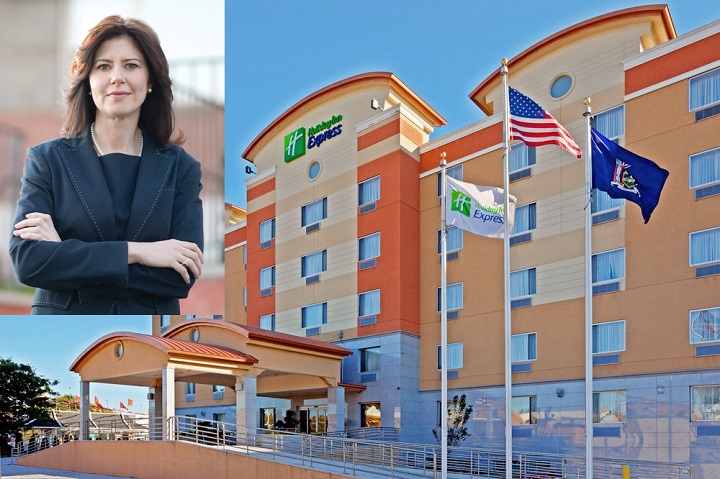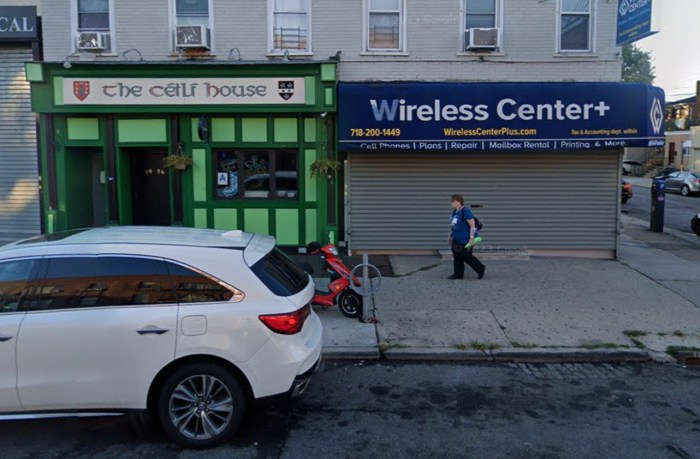Soon after the news broke that Maspeth was about to get a homeless shelter for adults, a wild rumor began circulating through the community that the plan was the result of a political horse trade.
It started when a local blog, Queens Crap, claimed on Aug. 4 that Councilwoman Elizabeth Crowley was secretly in favor of the Maspeth shelter that she publicly opposed. Citing “government officials who asked not to be named,” Queens Crap alleged that Crowley agreed to the plan and, in turn, the de Blasio administration agreed to withdraw its proposal for a transitional homeless shelter in Crowley’s hometown of Glendale.
QNS investigated this claim and found it to be light on facts and heavy on fiction. In reality, a spokesperson for the city’s Human Resources Administration (HRA) confirmed to QNS late on Friday afternoon that the Glendale shelter is still on the table along with the Maspeth shelter plan.
“That rumor is not true,” the spokesperson said in an email. “The proposal for a shelter in Glendale is under review. New York City is legally obligated to provide shelter to any New Yorker who would otherwise be turned out onto the streets. We have met with community leaders and participated in an open community forum to continue to build a constructive dialogue around this issue. Homelessness is a citywide challenge that requires a citywide response.”
Two plans, major differences
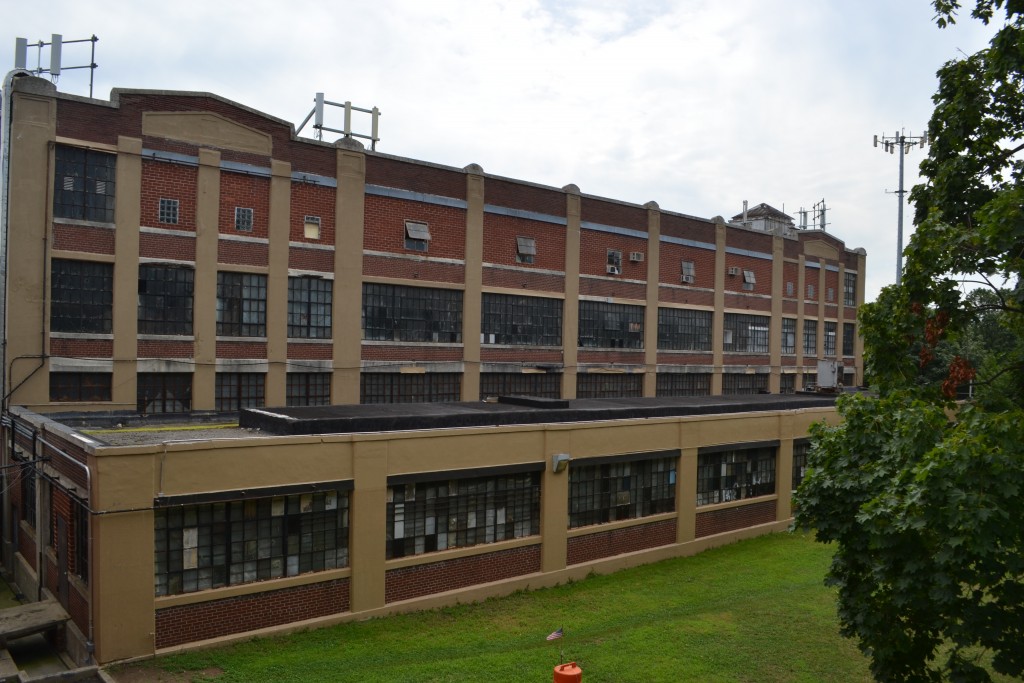
The proposal to transform the Holiday Inn Express on 55th Road in Maspeth came nearly three years after the city proposed transforming a defunct factory on Cooper Avenue in Glendale into a transitional homeless shelter.
Both projects are vastly different in scale and scope, according to Community Board 5 Chairperson Vincent Arcuri.
Originally proposed in August 2013, the Glendale shelter would house up to 125 homeless families with children under 18; that number was eventually lowered to 75 families as plans for the building were altered. Based on an average of four people per family, that translates to a shelter population of 300.
The city had reached a deal with the nonprofit group Samaritan Village to operate the shelter, but the plans have been delayed due to a combination of factors. A local group of civic and business leaders are contesting the project in court, and plans to retrofit the factory into residential quarters have been twice rejected by the Department of Buildings.
The Maspeth shelter proposal, meanwhile, would house a maximum of 220 homeless adults; children under 18 would not be permitted to reside there. Acacia Network, which operates other homeless shelters in New York City, is the proposed operator of this shelter.
Human Resources Commissioner Steven Banks told residents at an Aug. 11 meeting that the Maspeth shelter would be opened on or about Oct. 1; the Glendale shelter isn’t even close to opening.
No winners, only losers in a deal
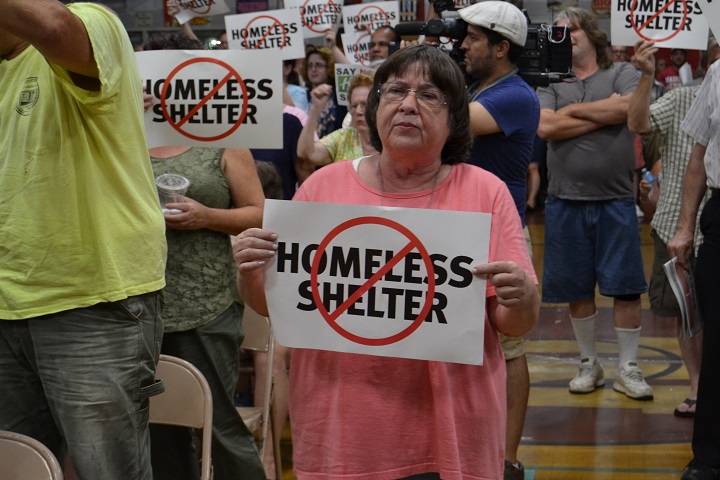
If such horse trading took place as Queens Crap had suggested, the city — which is grappling to figure out how to house 59,000 homeless people across the five boroughs — comes up a major loser in the deal.
Not only would they be housing 80 fewer residents, abandoning the Glendale shelter would force the city to find another place to house families with children because the Maspeth shelter would not permit residents under 18 years old.
Crowley herself would suffer from such a deal because supporting a shelter in Maspeth over Glendale would alienate voters in an electorally important region of her district. Maspeth and Middle Village are part of the 30th Assembly District, which cast the most votes in the 2013 City Council election in which residents gave Crowley a second full term in office.
Approximately 6,919 votes were cast in the 30th Assembly District, and Crowley (3,426, 51.5 percent) won it narrowly over her Republican opponent that year, Craig Caruana (3,215, 48.3 percent).
Glendale is split between two Assembly districts: the 28th, which also includes part of Middle Village, and the 38th, which also includes Woodhaven and parts of Ridgewood. While Crowley won the 38th District handily with 71.5 percent of the vote, just 3,574 total votes were cast there. That landslide win was doubly important because she won the 28th District by just 60 votes, and that district cast a total of 4,002 votes — more than 2,900 fewer votes than the combined number cast in the 30th Assembly District.
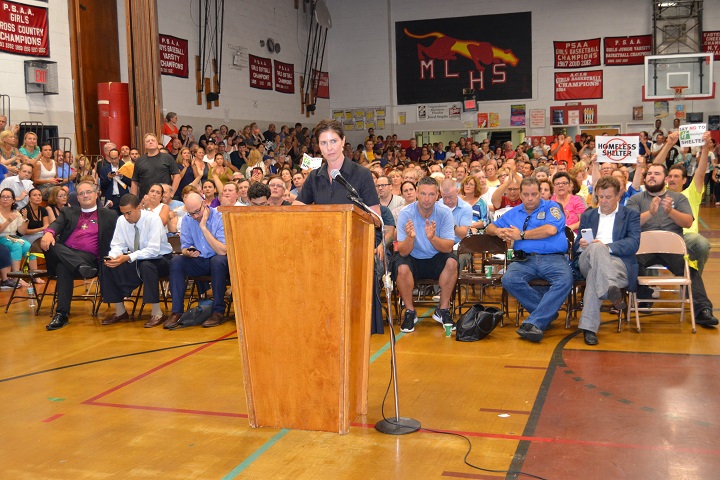
The gossip hurts everyone
During an Aug. 3 meeting between representatives of the mayor’s office and local elected officials, Arcuri said, Crowley asked the city if the administration was taking the Glendale shelter plan “off the table.” None of the officials there answered her question, he noted.
“These are two different proposals,” Arcuri said. “I think they’re just piling on” with the Maspeth shelter plan.
Kathy Masi, president of the Glendale Civic Association and member of the coalition challenging the Glendale shelter in court, said the rumor has no merit. She noted that among Crowley’s constituents in Maspeth include close relatives who would be impacted by a Maspeth shelter as much as other members of the community.
“Why in God’s name would she want to put a shelter in Maspeth?” Masi said. “She’s got generations of family there. I don’t believe that [rumor] for a minute.”
Masi also believes the false gossip complicates the ongoing battles each neighborhood is waging with the city to stop two proposals that the majority of residents believe are a disservice to the homeless people they intend to serve.
“It’s more important to have the Community Board 5 area united,” she added. “The rumors hurt us.”
When contacted by QNS on Monday, a spokesperson for Crowley vehemently denied the rumors: “It’s just not true.”
“My indisputable connection to this community is not only professional, it’s personal. My family in Maspeth goes back three generations. Stories like this hurt the community and divide us at a time when we should be coming together,” Crowley said in a statement on Monday afternoon.
Are they full of it?
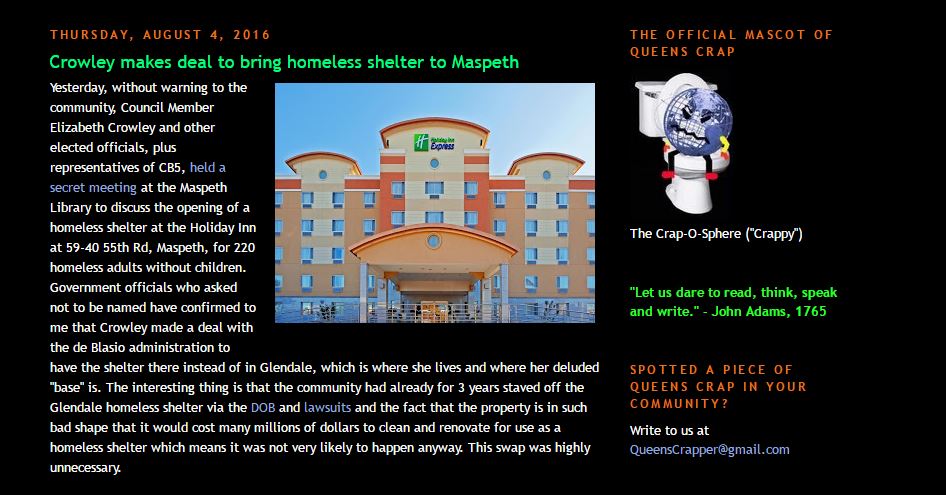
The city denies a deal; local civic leaders with a pulse on both shelter proposals also deny a deal; Councilwoman Crowley also denies a deal. A skeptic might suggest there’s an awful lot of plausible deniability shared by a great many people.
Anyone familiar with Queens Crap knows that the site, with its webmaster and many of its commenters cloaked by anonymity, treats many elected officials and the local press with contempt. In the past, they’ve hammered officials such as Crowley for supporting development projects they find to be harmful to Queens.
Because this rumor originated with Queens Crap, we asked how they received their information, with the understanding that they probably wouldn’t give us their exact source.
“NYPD,” the anonymous blogger behind Queens Crap wrote in response to a QNS reporter’s email inquiry. Those four letters were the extent of their message; no other specifics were provided. There are more than 51,000 employees of the NYPD, including more than 34,000 officers.
Although the NYPD works closely with some shelter operators on security plans, only the Department of Homeless Services and the HRA are responsible for the placement of homeless shelters — and the rejection of shelter proposals.
It is entirely possible that someone at the NYPD may have provided information about the Maspeth shelter to Queens Crap, but the statements of Crowley, city representatives and local civic leaders fighting the proposal seem to completely refute allegations of a secret deal.

